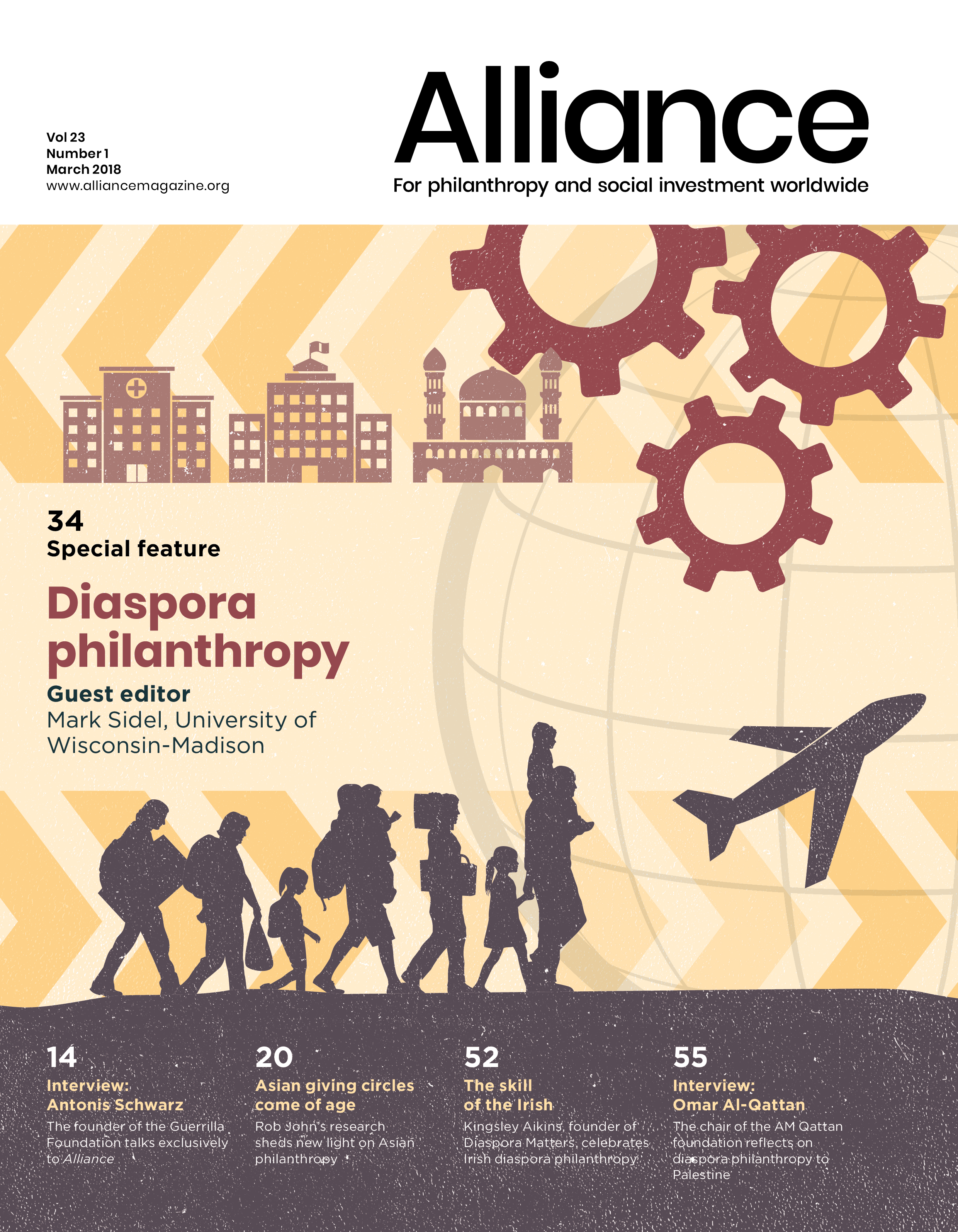In 2016, 82,000 millionaires moved from one country to another, according to a recent report by a South African market research firm. What resources are they bringing with them?
To what extent are they maintaining their connections back home? Are they here to stay?
In 2016, over 10 per cent of millionaire migrants settled in cities like Toronto, Vancouver and Montreal, making Canada an ideal setting to explore how resource-rich newcomers are transforming the charitable sector.

‘Canada has looked to immigration to satisfy
its economic and global trade aspirations
from the first moment Europeans set foot on these lands.’
Three points are worth noting in this regard. First, in 2013 a major financial institution reported that half of Canada’s wealthy were either first- or second-generation immigrants.
Second, a few months ago, the federal government announced a plan to welcome nearly one million new immigrants between 2018 and 2020.
Third, as of 2017, Toronto, Canada’s financial epicentre and leading touchdown city for migrants, is majority non-white.
When you consider these things alongside the growth of charities in Canada (now at 170,000 strong) and corresponding need for greater philanthropy, it makes sense for Canadian non-profit leaders to keep a close eye on how these emerging donors are starting to influence charitable giving.
Recently, I completed a study of the philanthropic interests of the new Canadian establishment.
From a sociological perspective, diaspora philanthropy supports the re-casting of the immigrant from beneficiary to benefactor, and supports a broader narrative about Canada as a land of great opportunity.
While there is a lot to say on this topic, here are three top issues and themes worth considering – ideas that I believe simultaneously advance and disrupt our understanding of diaspora philanthropy:
Immigrants are major actors in the story of Canada
Canada has looked to immigration to satisfy its economic and global trade aspirations from the first moment Europeans set foot on these lands. Successive waves of mass migration over the last 170 years have made Canada one of the most diverse countries in the world – and have created an idyllic story of democracy and tolerance.
For immigrant philanthropists, this provides new opportunities to take a seat at power tables predominantly occupied by elite, white donors.
From a sociological perspective, diaspora philanthropy supports the re-casting of the immigrant from beneficiary to benefactor, and supports a broader narrative about Canada as a land of great opportunity.
Charitable giving is an imported value
Varying experiences with charities back home can sometimes translate into perceptions of suspicion about giving within the local setting. As a result, donor managers and NGO leaders need to be aware of the historical and cultural contexts that influence these perceptions.
Immigrant philanthropists have played a critical role in advancing international and transnational partnerships.
Moreover, North American charities are notorious for speeding up their cultivation work with this demographic in order to secure a ‘quick win’.
Fundraisers must remain focused on building genuine and trusting relationships first – not on the transformative financial return.
While this sentiment is the bedrock of all major gift fundraising, the immigrant philanthropists I studied repeatedly expressed an emphatic and acute disdain for what I call ‘drive-by fundraising’.
High net worth diaspora donors are making local NGOs more global
Immigrant philanthropists have played a critical role in advancing international and transnational partnerships. They are supporting ‘back home’ by making multi-million dollar commitments for programmes that have an impact both here and there.
Canada’s growing diaspora population is leading the way in shaping an emerging and distinct global philanthropic movement.
This phenomenon is readily observed in Canadian hospital and university fundraising shops where several immigrant philanthropists have recently made significant, transformative mega-gifts to support international student exchanges and scholarships, health research and clinical trials, and other long-term projects that propel and cement cross-border collaboration.
While these findings could be applied to other immigrant-receiving countries, Canada’s growing diaspora population is leading the way in shaping an emerging and distinct global philanthropic movement. In doing so, it is not only challenging domestic fundraising best practice but also the work charities take up every day.
Krishan Mehta is a fundraiser at Ryerson University and president of the Association of Fundraising Professionals Greater Toronto Chapter.
Email krishan@ryerson.ca






Comments (0)